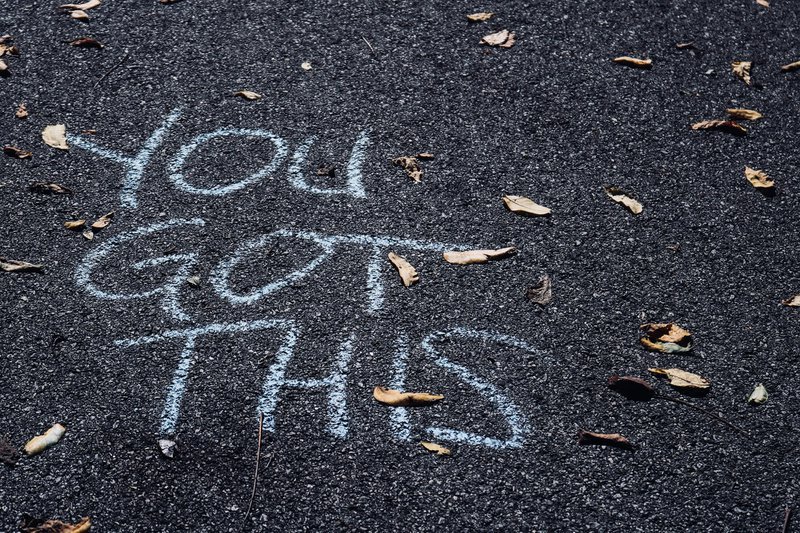The feeling of not being good enough can be debilitating, especially when it comes to our work. It can keep us from pursuing our passions and from doing our best. If you're a studio owner or artist who sometimes feels like you're not good enough, you're not alone. Many people feel this way, especially when it comes to their work. This feeling is called imposter syndrome.

In this article, we will be discussing the effects of imposter syndrome on studio owners. We will be exploring the symptoms of imposter syndrome and how to overcome them. Finally, we will provide some tips for building confidence in your work and yourself.
What is Imposter Syndrome?
Imposter syndrome can be especially common among studio owners and artists because art is such a personal pursuit. Your work is a reflection of who you are, so it's natural to feel vulnerable about it. You may worry that others will see your work and know that you're not really a talented artist or studio owner. Fortunately, there are ways to overcome imposter syndrome. By understanding the symptoms and causes of imposter syndrome, you can start to build confidence in your work and yourself.
The symptoms of imposter syndrome and how to identify them
Imposter syndrome is the belief that you're not as good as others think you are. It's characterized by self-doubt, a fear of being found out, and a feeling of fraudulence. Even when you have evidence that you're competent, you may still feel like a fraud.
If you're a studio owner or artist, you may be particularly susceptible to imposter syndrome. This is because creativity is often seen as a talent that you're either born with or not. And if you don't feel like you have this natural talent, it's easy to believe that you're not good enough.
Imposter syndrome can be difficult to identify because its symptoms are often subtle. However, there are a few key signs that you may be experiencing imposter syndrome. If you identify with any of the following symptoms, you may want to explore ways to overcome them.
If you're experiencing any of these, it may be time to start working on building your confidence:
1. You doubt your abilities and talent.
2. You feel like a fraud or fake.
3. You're afraid of being found out.
4. You downplay your successes.
5. You compare yourself to others and feel that you're not as good as they are.
6. You have perfectionistic tendencies and expect too much from yourself
How to overcome the fear of being found out
One of the biggest fears associated with imposter syndrome is the "fear of being found out". You may feel like sooner or later, people will realize that you're not as good as they think you are. This can be a paralyzing feeling, but there are ways to deal with it.
Accepting compliments
Owning your successes, and sharing your work with others can be difficult when you're afraid of being found out. But it's important to do these things if you want to overcome imposter syndrome
Start by accepting compliments gracefully. When someone tells you that they like your work, don't brush it off or downplay it. Instead, say thank you and believe that they're sincere. It may feel awkward at first, but the more you do it, the easier it will become.
Also, be sure to share your work with others. This can be a scary prospect if you're afraid of being found out, but it's essential for getting feedback and building your confidence. More on that later.
Creating a positive self-image
One of the best ways to overcome imposter syndrome is to create a positive self-image. This means accepting yourself for who you are, flaws and all. It may sound cliché, but it's important to love yourself before you can love your work.
To create a positive self-image, start by making a list of your positive qualities. Include things like your strengths, talents, and accomplishments. Then, whenever you're feeling down about yourself, take out the list and read it. This will help.
Practicing radical self-compassion
Radical self-compassion is the practice of being kind to yourself, even when you fall below your own standards. It's about accepting that you're not perfect treating yourself with kindness and understanding... yes I know it sounds woo-woo but it works.
If you want to practice radical self-compassion, start by permitting yourself to be human. Then, whenever you make a mistake, instead of berating yourself, treat yourself with kindness and understanding. Everyone makes mistakes.
Focusing on your strengths
When you have imposter syndrome, it's easy to focus on your weaknesses. But this will only make you feel worse about yourself. Instead, focus on your strengths. This will help you feel more confident and capable.
Alongside your list of positive qualities make a list of things you're good at.
Build on those strengths and accomplishments. Again, when you're feeling down, take out the list and remind yourself of how awesome you are.
Remember that everyone feels like an imposter sometimes. Even successful people have moments where they doubt themselves.
Focus on the process, not the outcome. As long as you're working hard and doing your best, that's all that matters.
Focus on your achievements and accomplishments. What evidence do you have that you're good at what you do?
Refer to your lists when you're feeling down about yourself.

Strategies for building confidence in your work and yourself
One of the most important things you can do as an artist or entrepreneur is to build confidence in your work and yourself. This can be a challenging task if you feel like you're surrounded by talented people, but it's essential for your success.
Don "Campbellock" Campbell would say don't try to be better than someone else, be the best you! "How I dressed, How I talked, How I walked. How I danced. They were all me. From the time I step foot out that door 'til the time I went to bed at night, I was "Campbellock".
Share, don't compare your work
One thing you can do for your confidence is to share your work with others. You can do this whether you are an artist or an owner. Don't make too much effort. At first, it's just about doing. This can be a scary prospect if you're afraid of being found out, but it's essential for getting feedback and building your confidence.
It doesn't matter if others understood your work. I remember giving feedback to my friend Kwesi Johnson, about a piece he had performed, only to discover that his goal was different from what I thought... like totally different.
When I worked with Jonzi D on Tag... me vs the City, I was stunned to find that he was accepting feedback on work that we just barely explored. His philosophy was that it was better to get early feedback than to produce an entire work that is not hitting.
Remember that everyone has their own unique talents and strengths. Sharing is not just about praise, it's about understanding. When you share your work, you're allowing others to help you grow and improve.
Get Feedback
Feedback is essential for artists and entrepreneurs. It's the only way to know if you're on the right track. But it can be difficult to take constructive criticism, especially if you're already feeling insecure about your work.
Try to remember that feedback is a gift.
Feedback is an opportunity to learn and grow. Remember the words of Bruce Lee - "Absorb what is useful. Reject what is useless. Add what is essentially your own."
Tips for dealing with self-doubt and negative thoughts
Finally, if you're struggling with self-doubt, here are a few tips that may help:
Acknowledge your feelings
Recognizing that you're feeling negative can help you deal with it more effectively. The brain has positive intentions for everything. If you're feeling negative, it could be because your brain is trying to protect you or draw your attention to something. Acknowledge the feeling, and then try to understand why it's there.
Talk to a coach, mentor, or friend, someone you trust will both listen and give you constructive feedback. The nice thing about having a coach or mentor is that they've probably been through what you're experiencing already. They may be able to offer perspectives that you haven't considered. You've heard me talk about my mentors, Ryan Levesque and Pedro Adao, but I also consider Arnold Schwarzenegger, Bruce Lee, Steve Jobs, and Muhammad Ali to be mentors to me, even though I haven't met them. I learn from their writings, videos and experiences.
Accepting that feelings are just that... Feelings.
Your thoughts and emotions are just thoughts and emotions. They don't necessarily reflect reality. Just because you're thinking or feeling something, doesn't mean it's true. If you want to see how easily your emotions or thoughts can fool you, have a look at Derren Brown's Hero at 30,000 feet.
Turn negative thoughts into positive affirmations
This is a technique that I've found helpful when dealing with negative thoughts. You might have noticed that your brain doesn’t automatically dismiss negative self-talk as negative. In fact the brain is not very good at processing anything other than positive statements.
As an example, if I were to tell you, “Don’t think of a blue turtle on a unicycle,” you immediately picture a blue turtle on a unicycle. Your brain totally ignores the word “don’t”. Your brain must first focus on what you don’t want in order to ‘intellectualise’ the negative. For that reason, positive affirmations have an uneven track record. So to get the best result from affirmations, you have to consider that your brain may still hold the undesirable outcome.
Whenever you have a negative thought about yourself, try to counter it with a positive affirmation that recognises the undesirable outcome. For example:
Negative thought: I'm not good enough
Positive affirmation: I might not be where I want to be but I am continuing to grow
Negative thought: I'm not smart enough
Positive affirmation: I'm not smart enough to give up. I will work harder.
Talk to yourself the way you would talk to a friend
If a friend was going through what you're experiencing, how would you talk to them? Would you be gentle and understanding? Would you give them hope? Talk to yourself the way you would talk to a friend. Be compassionate and understanding with yourself.
You don't have to get it perfect
This one is specifically for studio owners and it comes from my mentor Ryan. "You don't have to get it perfect, you just have to get it going". Don't get trapped in yourself. Take immediate action, ESPECIALLY when you're feeling stressed.

Just Do it
In this article, we discussed the effects of imposter syndrome on artists and studio owners and how to overcome them. We also shared some tips for building confidence in your work and yourself.
Finally, we offered some advice for dealing with negative thoughts and emotions. If you're struggling with self-doubt, try using some of the techniques listed here to help you.
Do you have any other advice on how to build self-confidence and overcome imposter syndrome?
Leave your comments in the comment box below.
